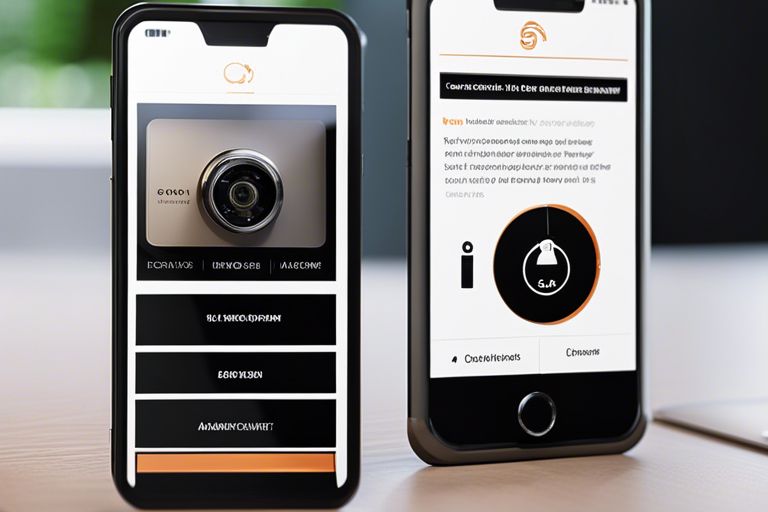As a parent, ensuring your child’s safety is a top priority. In today’s digital age, where the online world can pose various risks, having the right security tools in place is crucial. In this guide, you will discover a curated list of the best security tools designed specifically for parents like you. These tools will help you monitor your child’s online activities, block inappropriate content, and establish healthy screen time limits, giving you peace of mind in this digital era.
Key Takeaways:
- Parental control software: Consider using parental control software to monitor and restrict your child’s online activities, including websites visited and amount of screen time.
- Anti-virus programs: Install robust anti-virus programs on all devices to protect against malware, viruses, and other cyber threats that could compromise your child’s security.
- Password managers: Use password managers to create and manage strong, unique passwords for your child’s accounts, enhancing their online privacy and security.
Identifying Online Risks
A key aspect of protecting your children online is being able to identify potential risks that they may encounter while using the internet. By understanding these risks, you can take steps to mitigate them and keep your children safe.
Cyberbullying and Online Harassment
Online interactions can sometimes take a negative turn, leading to cyberbullying and online harassment. It’s crucial to monitor your child’s online activities and look out for signs of bullying or harassment. Encourage open communication with your child so that they feel comfortable discussing any unpleasant experiences they may have had online.
Inappropriate Content and Predators
Some online platforms may expose your child to inappropriate content or put them at risk of interacting with predators. Monitoring your child’s online accounts and setting up strict privacy settings can help protect them from such risks. Additionally, educating your child about online safety and the importance of not sharing personal information with strangers is crucial in preventing potentially dangerous situations.
For instance, you can use parental control software to block access to websites with explicit content and limit your child’s interactions with unknown individuals online. By staying vigilant and proactive in monitoring your child’s online behavior, you can significantly reduce the risks associated with inappropriate content and online predators.
Choosing the Right Security Tools
Even Best parental control apps? : r/Parenting
Antivirus Software for Kids’ Devices
An necessary aspect of keeping your kids safe online is having reliable antivirus software on their devices. Children are often curious and may unknowingly click on suspicious links or download harmful files while browsing the internet. Installing reputable antivirus software can help protect their devices from viruses, malware, and other online threats.
Parental Control Apps for Mobile Devices
Kids today are more tech-savvy than ever, which is why it’s crucial to have parental control apps on their mobile devices. These apps allow you to monitor and control your child’s online activities, set screen time limits, block inappropriate content, and track their location. By using parental control apps, you can have peace of mind knowing that your children are safe while using their smartphones or tablets.
Choosing the right parental control app for your child’s mobile device can seem overwhelming, given the plethora of options available in the market. When dicking out an app, consider features such as content filtering, app blocking, screen time management, and geofencing to ensure comprehensive protection for your child.
Web Filtering and Blocking Tools
Another necessary security tool for parents is web filtering and blocking software. These tools help you regulate the websites your child can access, block inappropriate content, and prevent them from visiting potentially harmful sites. By setting up web filtering and blocking tools on your home network or your child’s devices, you can create a safer online environment for your kids.
Antivirus software is necessary for protecting your child’s devices from online threats, but combining it with web filtering and blocking tools provides comprehensive security coverage. These tools work together to safeguard your child’s online experience by preventing malicious websites, blocking harmful content, and keeping their devices free from malware.
Choosing the right security tools for your family’s online safety is crucial in today’s digital age. By implementing a combination of antivirus software, parental control apps, and web filtering tools, you can create a secure online environment for your children to explore and learn without compromising their safety. Stay informed about the latest advancements in online security tools to ensure that you are taking proactive steps to protect your family in the ever-evolving digital landscape.
Monitoring and Tracking
Unlike Best Parental Control Apps of 2024, keeping an eye on your child’s online activities has never been easier. With the right tools, you can ensure they are safe while browsing the web and using various apps.
Keeping Tabs on Online Activities
On top of restricting access to certain websites, you can monitor your child’s online activities in real-time. This includes being able to see which websites they visit, how much time they spend on each site, and even setting limits on screen time.
GPS Location Tracking for Kids’ Safety
Activities like GPS location tracking can provide you with peace of mind knowing where your child is at all times. Whether they’re walking home from school or out with friends, you can track their location and set up safe zones to receive alerts if they go beyond designated boundaries.
Monitoring your child’s online presence and interactions is crucial in today’s digital age. By using advanced tools, you can keep track of their social media accounts, messages, and online interactions.
Monitoring Social Media and Messaging Apps
Tracking your child’s social media and messaging apps is vital to ensure they are not exposed to inappropriate content or interacting with strangers. By monitoring these platforms, you can intervene if necessary and have open discussions with your child about online safety.
For instance, you can set up keyword alerts to notify you if your child receives or sends messages containing specific words or phrases. This proactive approach allows you to address any potential issues before they escalate.
Setting Boundaries and Rules
All parents want to ensure their children are safe online. Setting boundaries and rules around screen time, creating a family technology plan, and educating kids about online safety are crucial steps in keeping your children protected in the digital world.
Establishing Screen Time Limits
Any parent knows that balancing screen time can be challenging. To establish healthy screen time limits, consider setting specific time frames for device use, encouraging breaks every hour, and enforcing no screens at meal times or before bed. By setting consistent boundaries, you can help your children develop a healthier relationship with technology.
Creating a Family Technology Plan
Creating a family technology plan involves outlining rules and guidelines for device use within your household. This can include setting rules for when and where devices can be used, discussing online behavior expectations, establishing consequences for breaking rules, and promoting open communication about online activities. By involving your children in the creation of the plan, you can empower them to make responsible choices online.
Screen
Educating Kids about Online Safety
Rules about online safety are crucial in today’s digital age. Educating your kids about topics such as privacy settings, not sharing personal information online, recognizing and avoiding online scams, and the importance of treating others with respect in online interactions are fundamental to their safety. Encourage open conversations about online risks and provide guidance on how to navigate potential dangers effectively.
To ensure your children’s safety online, it’s crucial to not only set rules and boundaries but also educate them about the potential risks and how to stay safe while using the internet. By implementing these strategies, you can help your children develop healthy technology habits and protect them from online threats.
Advanced Security Measures
After reviewing the best parental control apps for Android and iPhone 2024 on The best parental control apps for Android and iPhone 2024, you may want to consider implementing advanced security measures to further protect your children online. Here are some important tools and practices to enhance your family’s online safety:
-
Two-Factor Authentication for Kids’ Accounts
To add an extra layer of security to your children’s online accounts, consider enabling two-factor authentication (2FA). This feature requires both a password and a secondary verification method, such as a code sent to a trusted device, to log in. By enabling 2FA on your kids’ accounts, you can help prevent unauthorized access, even if their passwords are compromised.
-
Encrypting Data and Communications
Advanced security measures also include encrypting your family’s data and communications. Encryption scrambles data to make it unreadable to unauthorized users, providing an additional level of protection against cyber threats. You can use encrypted messaging apps and secure email services to safeguard sensitive information shared online.
-
Using a Virtual Private Network (VPN)
Any time you or your kids connect to the internet, there is a risk of cyber attacks and data breaches. By using a Virtual Private Network (VPN), you can encrypt your internet connection and hide your online activities from prying eyes. A VPN adds a layer of security when browsing the web, especially on public Wi-Fi networks.
Implementing these advanced security measures can significantly enhance your family’s online safety and protect your children from various online threats. By staying proactive and using the right tools, you can create a secure digital environment for your kids to explore and learn while minimizing the risks associated with the online world.
Staying Up-to-Date with Emerging Threats
Despite having security tools in place to protect your family online, it’s crucial to stay informed about the latest cybersecurity threats and vulnerabilities. By staying up-to-date, you can better safeguard your family against emerging risks and take proactive measures to enhance your online security.
Following Cybersecurity News and Updates
For staying informed about the ever-evolving landscape of cybersecurity, make it a habit to follow reputable cybersecurity news websites, blogs, and social media channels. These platforms provide valuable insights into the latest cyber threats, data breaches, and tips to enhance your family’s online safety.
Participating in Online Safety Communities
News regarding cybersecurity often spreads rapidly through online safety communities. By participating in forums, discussions, and groups focused on online safety for families, you can learn from the experiences of other parents and receive timely advice on how to protect your children from online dangers.
Engaging with like-minded individuals in these communities can help you stay informed about emerging threats, share best practices, and seek guidance on tackling specific security challenges that you may encounter while safeguarding your family online.
Attending Workshops and Seminars
Workshops and seminars conducted by cybersecurity experts offer valuable opportunities to deepen your understanding of online threats and security measures. These events often cover a wide range of topics, including parental controls, safe online behavior, and emerging cyber risks that parents need to be aware of.
By attending these workshops and seminars, you can interact with experts in the field, ask questions, and gain practical knowledge that you can apply to strengthen your family’s online security posture. These events also provide a platform to network with other parents facing similar online security challenges, fostering a community of support and shared learning.
Final Words
To wrap up, as a parent, it’s crucial to utilize security tools to protect your children online and ensure their safety. By implementing parental control software, password managers, VPNs, and monitoring applications, you can have peace of mind knowing that you are taking proactive steps to safeguard your family in today’s digital age. Remember to stay informed about the latest trends in online security and continue to prioritize your children’s well-being by staying one step ahead of potential threats.
Q: What are some key features to look for in security tools for parents?
A: When deciding on security tools for parents, it is important to look for features such as content filtering, parental controls, real-time monitoring, and reporting capabilities. These features can help parents track their children’s online activities and ensure they are browsing safely.
Q: How can security tools for parents help protect children from online threats?
A: Security tools for parents can help protect children from online threats by blocking inappropriate content, restricting access to certain websites, monitoring social media activity, and alerting parents to any concerning behavior. By using these tools, parents can create a safer online environment for their children.
Q: Are there any free security tools available for parents?
A: Yes, there are several free security tools available for parents, such as Qustodio, Kaspersky Safe Kids, and Norton Family. These tools offer basic features like content filtering and time management, which can be helpful in monitoring and protecting children’s online activities at no cost.






